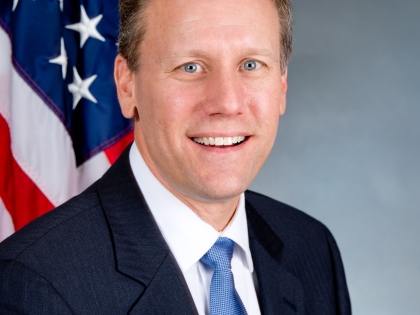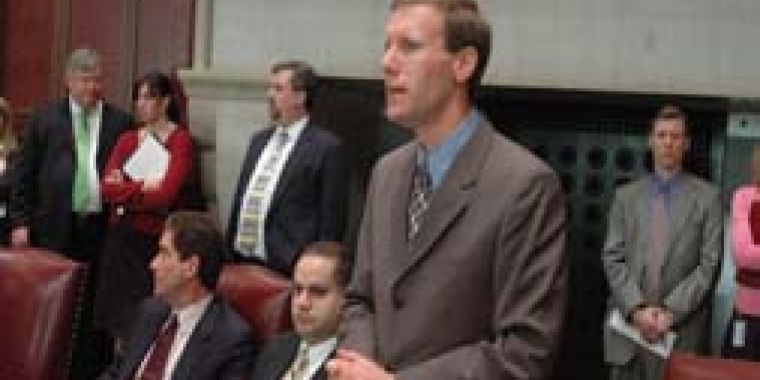
A First Step On The Road To Reform

The New York Senate has finished work in Albany for the year. Compared to past years, it was a productive session. With an on-time budget this Spring and other important reforms in the final days of session, our state took the first steps on the long road to a more open, responsive and representative government.
Yet despite many important gains, too many challenges were left unresolved and too many needed reforms were left unfinished for the people of this state to become complacent.
When the year began it was my hope that the Legislature would address the top concerns of the people of our state, like the rising cost of Medicaid and the state's inadequate education formula. I was optimistic we would do everything possible to keep and create jobs by maintaining low cost energy for manufacturers and by finally reforming the workers' compensation system. I had also hoped the Legislature would use the mandate for reform to enact significant changes to the process, including legislative reform and lobbying reform.
If this year is remembered for any one achievement, it will be our ability to pass the first on-time budget in two decades.
I was delighted to help craft and then vote for the budget -- a budget supported by a bipartisan majority of legislators. This budget included a cap on the local responsibility for Medicaid, it protected important agriculture programs, and it included increased funds for education. It was a good budget, and it was a timely budget.
We achieved this on-time budget by opening up the process, by relying on bipartisan conference committees, and by including the input of rank-and-file members from across the state. In past years, control of the budget process was concentrated behind closed doors in the hands of the ‘three men in a room.’ This year things were different. The resulting on-time budget confirmed that an open system of government is a more efficient system.
When the budget passed, I was quite hopeful that we would be able to use the same open and democratic process to address many other issues facing our state. Through bipartisan cooperation, we were able to tackle many important challenges in the months that followed.
We delivered on the need for low-cost energy for manufacturers, saving countless jobs and averting the sure economic disaster that would have occurred had EDP power contracts been allowed to sunset this fall. We finally came to resolution on HAVA, and though it was not the perfect solution, the action means our state will receive the federal dollars so desperately needed to update our electoral system. As I mentioned, we also took important first steps in relieving the burden Medicaid costs have placed on local communities.
In the last days of session the legislature also took an important step to open up interstate wine shipment, removing obstacles to our burgeoning wine industry. We passed a vital measure that will allow seniors to compare costs of prescription drugs online, enabling many elderly to save money on life-saving medications. We also took much needed action to slow the scourge of methamphetamines across our state.
The final days of session also saw many achievements for the reform movement. In a most important reform, the legislature passed the public authorities accountability act of 2005. The Legislature also reached agreement on procurement lobbying, meaning future oversight of the competition to win lucrative state contracts. And, legislative leaders finally dropped opposition to changes in the ethics law, closing a loophole that allowed state employees to escape ethics investigations by quitting their job. These reforms follow the changes made early in the session to the legislative process, which brought an end to empty-seat voting. These small but important steps show that reform is possible, even though change is often slow.
While there were many accomplishments, there was also much left undone. the Legislature failed to improve our state's out-dated workers' compensation system. We neglected to take up education funding -- an issue brought to the forefront by the CFE decision. And, the legislature did not agree on legislation to address the rising cost of health insurance.
Even as the reform movement made notable strides, many of the more substantive reforms were short-circuited by a broken system. The lack of action on important issues and needed reform was due to typical Albany power politics. Although there was an open and democratic process used to adopt the budget, the rest of the session was marked by more of the same -- with the Majority Leader reclaiming near-total control of the Senate's agenda.
With one legislative session in Albany behind me, I can confirm what most state residents suspect and what the Brennan Center continues to point out: Albany's dysfunction is a direct result of the concentration of power. To truly change the way Albany operates and create a more open, responsive and democratic legislature we must take seriously the need for reform, including campaign finance and redistricting reform. Most importantly, we must revisit legislative reform. So long as the power remains in the hands of a few and not the hands of the people, our state will continue to leave our greatest challenges unresolved.
Still, it has been a memorable session that has given us reformers a taste of what is possible. To get there, the people of New York must be engaged; the reform movement must keep pushing forward; and the legislators representing the people must remain determined to do more.
